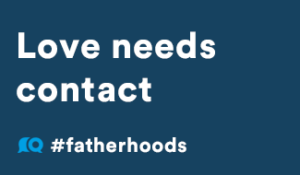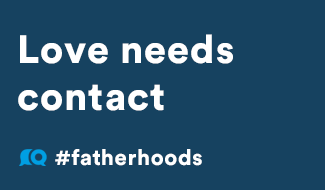After a relationship breakdown, it can sometimes be difficult to let go and allow your former partner to look after the children you had together. This can be for several reasons, many of which are often unrelated to the children themselves. For example, you may have been emotionally hurt by your ex-partner, or you may be trying to agree what’s going to happen to the house, or what will happen with child support and maintenance. This is all part of the emotional and legal fall out when a relationship ends.
It is natural to be nervous, or even unhappy about childcare arrangements after a relationship has broken down, but do you really feel that your ex is too ill to look after the children?
However, what happens if you have a genuine concern over your ex-partner’s mental health?
Welfare of the children
The starting point must always be the welfare of your children. If contact or care cannot be agreed and it becomes necessary to ask the court to make a decision, this will be the court’s paramount consideration. The court will also look at a range of other important factors, and it is helpful to start thinking about them at this stage.
The most relevant considerations in this situation would be:
- the emotional needs of the child;
- any risk of harm that the child has suffered or is at risk of suffering;
- how capable your ex is of meeting your child’s
Your child has an emotional need to have a relationship with their other parent, so they should be seeing them unless there is a reason not to. This reason could be any risk of harm they could suffer, or whether your ex is capable of meeting their needs.
For example, are they well enough to prioritise the children, feed them, stimulate them and generally make sure that they are safe and secure during contact? If someone is mentally ill they may not be able to do so. If they are suffering from delusions, psychosis or depression then this could be frightening for children, and may cause emotional harm.
What should you do?
Firstly it is important to identify whether this is a genuine concern. It is natural to be nervous, or even unhappy about childcare arrangements after a relationship has broken down, but do you really feel that your ex is too ill to look after the children?
Psychiatric illness covers a whole range of conditions and severities, not all of which impact on someone’s ability to care for their children.
Consider whether your ex has a history of mental illness. If they have, how has this been managed in the past? Were they taking medication or undergoing treatment? If so, are they continuing to do this? If properly managed, this should not prevent your ex from looking after the children.
Consider your ex’s presentation and demeanour. What is it about them that makes you worried? Is it something that they may be able to manage while they are looking after the children, perhaps for a short period of time, if necessary?
Supporting your ex
Is there anyone who could support your ex during their time with the children? For example, a grandparent, a sibling or family friend who may be able to assist. Having someone else present may help to minimise any risk to the children without them even realising that such steps have been necessary. If you are able to share your concerns with your ex’s parents or a trusted friend, then this could also help them to access further support. They may accept advice from other people in a way that they no longer feel able to do from you.
Whether or not your ex realises that they are unwell is also crucial. Do they recognise that they may be a risk to the children? If they understand this, and are willing to take steps to ensure that the children are safe in their care, the risk may reduce significantly.
Consideration should also be given as to whether this is a short or long-term situation, even if that is not clear at the outset. If contact does not take place for some time, this in itself can present problems later down the line, even when the mental health issues have been resolved.
Stopping contact
If you have tried all of the above and your ex still wants to see the children, but you feel that they are not mentally well enough to do so, you may need to consider stopping contact. This is a big step and not one that should be taken lightly. However, if you have concerns that your children are at risk of harm if your ex was to look after them then you have no alternative.
Applications to the court
Do you think that if you stop contact your ex may try to see the children anyway, for example by trying to collect them from school without your knowledge or agreement? If this is the case then you should make an application to the Family Court for a Child Arrangements Order, and a Prohibited Steps Order.
A Child Arrangements Order confirms who a child should live with, when they should see the other parent and whether this contact should be supervised. A Prohibited Steps Order means that the person named in the order is forbidden from doing something. In this scenario, it could prevent a child being removed from your care by your ex-partner.
If the children are already in your ex-partner’s care, you may need to collect them yourself if you genuinely feel that there is a risk of harm. If your ex will not allow them to come with you, you need to consider making an urgent application to court for a Child Arrangements Order stating that the children should live with you and outlining what contact they should have with their other parent. In that situation, the court may decide that it needs evidence of the risk of harm that you are alleging, for example by obtaining a report from your ex’s GP or any treating psychiatrist.
Evidence
The court needs to be convinced that there is a risk of harm to the children before removing them from your ex’s care or restricting contact, which takes us back to the questions raised earlier about how any mental health issues actually affect your ex’s ability to care for the children.
The sad truth is that contact arrangements after the breakdown of a relationship are often highly charged and difficult for both parties to come to terms with. If your ex has mental health issues then this can make a difficult situation even more stressful and confusing, especially when you only want to do what is best for the children.
It is always helpful in these circumstances to see a solicitor to explain your concerns and obtain guidance on the best way forward for you and your family.
Posted on May 17, 2019














